Heart Heroes
What is an Epic Heart Hero?
An Epic Heart Hero is a woman who has come back from a heart issue, has taken control of her health, and refuses to let her heart condition stop her. She approaches life with passion and strength, as she knows too well how short life can be. She embraces a healthful lifestyle, knows the risk factors for heart disease and stroke, and takes action to minimize that risk. She helps educate others about these risk factors so that they too can take control of their heart health.
Our Heart Heroes will serve as spokespeople for the American Heart Association and the Detroit Women’s Half Marathon, 10K, and 5K, and represent the Epic Heart Heroes at the Women Run the D Expotique on race weekend and participate in the races on race day.
Meet previous Epic Heart Heroes:
Kristy Sidlar
We all have dates burned into our memories – our parents’ birthdays. Our wedding anniversary. The birthdates of our children. But the dates I remember most vividly are the dates when I almost died.
The first was April 14, 1996, when I was teaching a fitness class and collapsed in front of my students. Fortunately, my blackout only lasted a handful of minutes and by the time the EMTs arrived, everything appeared to be fine.
The second time was on my 31st birthday – Halloween, 1999. I was training for a triathlon, by myself, with no cell phone, lying on the side of the road fading in and out of consciousness for 45 minutes. Another cyclist finally came by and called the paramedics. My heart was shocked back to a normal rhythm from its peak rate of 280 beats per minute.
This was when I was formally diagnosed with a rare heart condition and was told that the first symptom of my condition is often sudden death. I was again spared. My condition, however, was progressive and worsened through intense exercise. I was told my lifestyle had to change significantly. This was a hard pill to swallow, but I knew in my gut that cutting back on something I loved meant sustaining my life for a longer period of time.
There were other close encounters with death, but my most incredible evasion was due to a gift from a selfless organ donor when on March 11, 2021, she passed life to me in the form of a healthy new heart.
My recovery was better than expected due to a multitude of factors – mainly a positive attitude, a focus on six core dimensions of wellness, and of course great medical care through Henry Ford Health System in Detroit.
On the six-month anniversary of my transplant, I completed the women Run the D 5k – my first in over 20 years. At my one-year mark, I complete that elusive triathlon, running across the finish line hand-in-hand with my 79-year-old mom.
During my first year post-transplant, I wrote a book called Change of Heart: My Journey of Transplantation, Revelation, and Transformation. I love telling my story, and I am always so grateful when a reader contacts me to tell me they made an appointment to check their heart health or that someone printed out my Wellness Widget and made commitments to better emotional health or social wellness or financial stability.
My last 25 years have been far from smooth, but I have learned some very valuable lessons and hope to continue to inspire people to take action and make changes for a more fulfilling life and a healthier

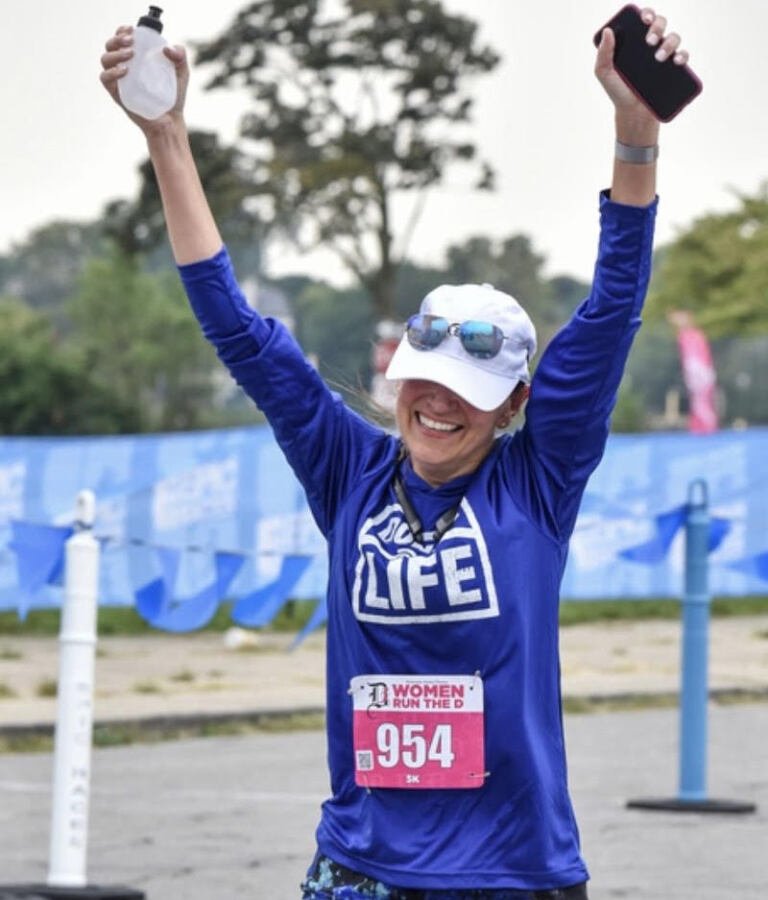

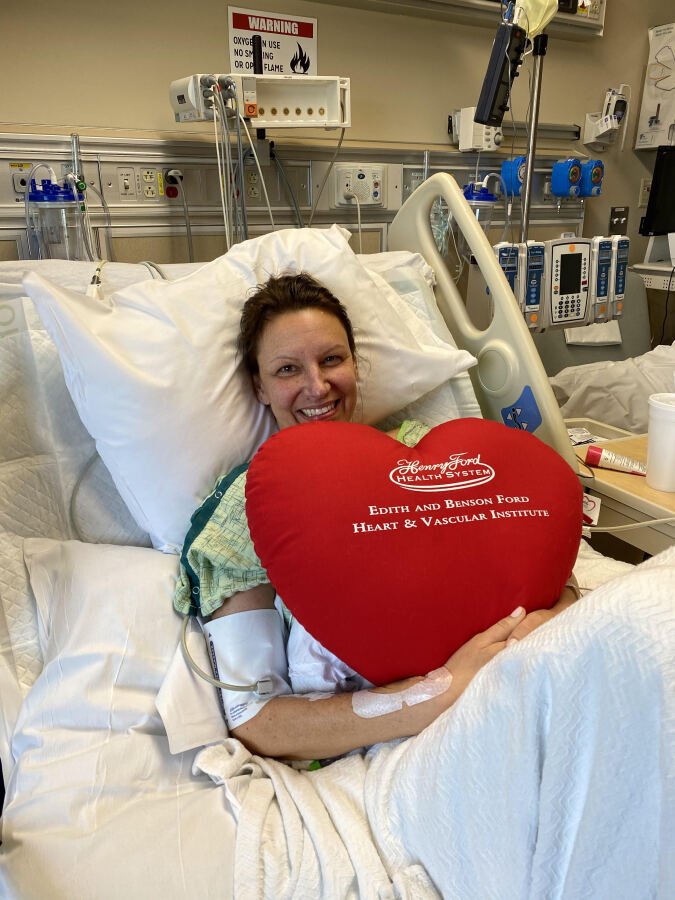
Lauren Steele
At age 50, I thought I was doing a pretty good job of taking care of myself. Sure, I enjoyed Nutella on my ice cream occasionally, but I generally ate healthful foods and I wasn’t a couch potato. However, in January 2021, I became a heart patient. The first sign of trouble was when I was doing my morning interval workout. I had to stop after only 10 minutes because I was much more winded than usual.
A few days later while I was completely sedentary, I began to experience symptoms out of the blue. My blood pressure reading was 10 points higher than usual, I felt flushed and light-headed, and my chest felt like a big dog was sitting on it. At the ER, they ran every test they could think of, and all the results came back normal except the BNP was a little high. Thankfully the ER doctor ordered a treadmill stress test. When that showed some irregularities, a catheterization was scheduled and I received a stent. During the first few months of recovery, I had unstable angina and symptoms I did not understand. I was afraid to climb stairs, I had no idea what activities were safe for me. After what seemed like forever, I was admitted to a cardiac rehab program. Upon completion, I noted that the certificate of achievement did not congratulate me for an accomplishment, it set out some expectations. It said, “certificate valid only with continued dedication and commitment to positive lifestyle changes in the areas of exercise, nutrition, and stress.” I have fully embraced that, as I have many adventures ahead of me. After only 2 months post-rehab, I went on a 3-day canoe trip in the Boundary Waters wilderness. This year I spent 5 days backpacking in Yosemite National Park. I am truly living my best life.

CLICK HERE FOR AMANDA ALLEN

Beth Rust
My name is Beth Rust. I teach Human Physiology to undergraduate and graduate students at the University of Michigan. I went from being a lean and fit Division I varsity athlete from ages 18-22 to being obese and having a heart attack at age 55. Despite a family history of coronary artery disease, the fact that my dad had a heart attack at 46 years old, and the fact that I knew my weight and lack of exercise put me at risk, I just didn’t take the time to prioritize my heart and overall health. In August of 2019, I finally decided to try to get working on my health and I lost about 15 pounds, but then the pandemic restrictions hit. I maintained a stable weight, so I was feeling pretty good about myself until I got my wake-up call. Beginning on March 6, 2021, I had 4 episodes of exertional chest pain that got worse each time. The chest pain, tightness, and breathlessness would occur when I increased my exercise intensity but then improve once I slowed down. The 4th time was really bad, so after consulting a nurse at my PCP’s office (yes, I called my doctor’s office instead of 911- not my brightest moment), my husband drove me to the hospital. Elevated troponin levels indicated a heart attack, and a stent was placed in my left anterior descending artery to correct a 90% blockage (if you look it up, this is the one they call the widow-maker, and sexist name aside, I was totally freaked out).
It's now been 17 months. I did 8 weeks of cardiac rehab and am a huge fan of the process. The exercise therapists, dieticians, and social workers helped me learn more about controlling my stress and my eating (I’m now a big fan of mindfulness) and gave me a monitored space in which I could safely increase my exercise intensity over time. I’ve lost 22 pounds and am no longer obese. My cholesterol levels are awesome now! Education is a huge part of who I am, which is why I was honored to be invited to share my story as a “heart hero”. It’s important to improve awareness that females do have heart attacks and that they can occur at well below the “average age” for either sex (~65 for men and ~72 for women). If my story makes a difference to even one person, then the whole process has been worth it.

Risa Kirschner
In 2003, I was 29 and pregnant with my second child. My daughter Alli was 2 at the time. Feeling ill due to what I thought was the pregnancy, I went to my local hospital. It was there they discovered I had an atrial myxoma, a heart tumor. I was sent by helicopter to Ann Arbor, where I spent almost two months at the University of Michigan hospitals. My unborn daughter did not survive the trauma, but I was told that had I not been pregnant, the tumor would not have been found and there was a good chance I would have died. I entered the hospital the first week of November and went home Christmas Day, on the heart transplant list with an LVAD implanted in my body. I was and remain very lucky. My heart healed and I did not have a heart transplant. Two months after leaving the hospital, the LVAD was removed. At one of my follow-up doctor appointments, I asked the doctor what I was supposed to do now that I had survived such a traumatic experience. He said I should go and live my life.
19 years later, that is exactly what I have done. I have treasured every single second spent with Alli, who is a senior at Michigan State University. I don't take a single day or my health for granted and try to live life to the fullest. I had been given a second chance and wanted to give back to those who made it possible and to help others who might be going through a similar experience. This led me to my many volunteer experiences at U of M, contributing a chapter to two separate books and writing my own children's book based on Alli's experience visiting me in the hospital, entitled Feel Better, Mommy. I love spending time with my family and friends and am grateful to be able to travel to amazing places and do amazing things. I am honored to be selected as a Heart Hero and continue to share my story.
This is what Dr. Dyke wrote, which specifically mentions many U of M docs:
Risa is an amazing woman, and her story, equally amazing. In November of 2003, while half way through a pregnancy, she developed breathlessness and was seen in a local hospital where she suffered a cardiac arrest. She was resuscitated and transferred to the University of Michigan and found to have a large tumor in her left atrium (an atrial myxoma). This was obstructing blood flow through her heart. She was emergently taken to the operating room, and under the expertise of Dr. Michael Deeb, the tumor was successfully removed. Unfortunately, her heart had suffered substantial injury, and a few days later, under the direction of Dr. Robert Bartlett, she needed to be placed on ECMO (extracorporeal life support). This sustained her for several days, but due to ongoing substantial heart dysfunction, she went back to the operating room where she underwent implantation with a HeartMate left ventricular assist device as a means to support her circulation while awaiting cardiac transplantation. The right side of her heart also required temporary support with an external Abiomed pump. This surgery was performed by Dr. Francis Pagani, with the assistance of Dr. Martin Spoor (who, on June 4th of 2007, tragically lost his life in a survival flight crash while retrieving lungs for another patient). Shortly thereafter, the Abiomed pump was able to be removed, and she went home with her left heart being supported with the internal HeartMate pump while awaiting a heart transplant.
Incredibly, her heart recovered. Completely. A heart transplant would not be needed! On 02/27/2004, again under the surgical expertise of Dr. Francis Pagani, the HeartMate pump was able to be removed. She spent the next several months recovering and rehabilitating.
Today, her heart function remains normal, and Risa is a very active individual! In September of 2022, she will participate, as an official Ambassador, in the "WOMEN RUN THE 'D'" series of races. This event is specifically to raise awareness of cardiovascular disease in women. Those of us who have participated in her care over the years are incredibly proud of her remarkable achievements!
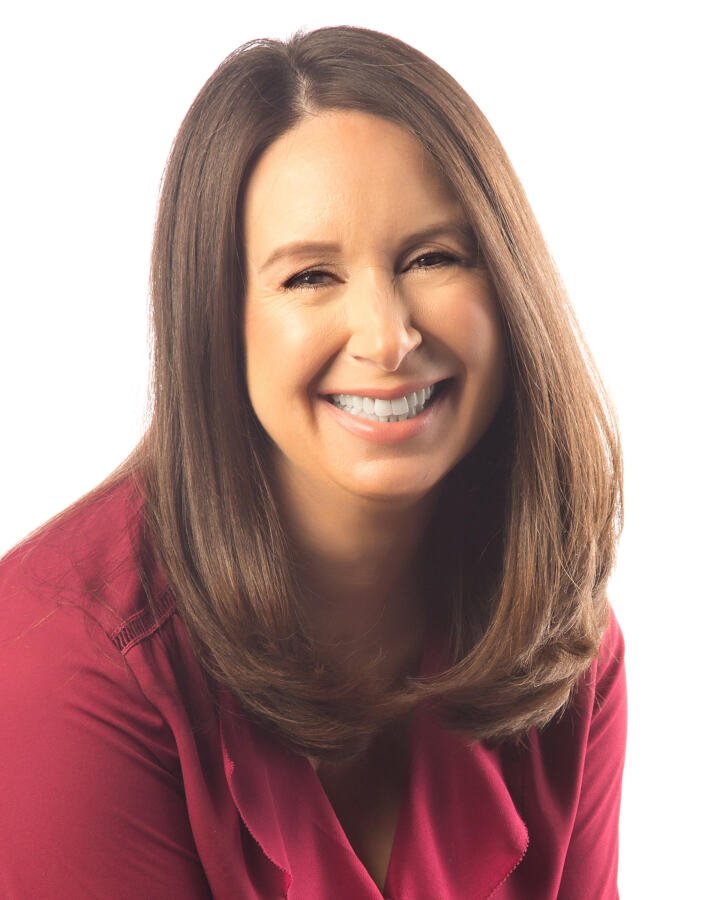
Jamie Lalond
Starting almost two years I started to experience chest pain that compromised my QOL. I found myself not able to walk even the short distance from the car to my office without breaks. I have always been heavier, but always active, completing several half-marathons. I had a stress test that was normal. I was told to manage my anxiety, lose weight, change nursing positions with my daughter, take muscle relaxers..Tylenol…Motrin…get weekly massages, acupuncture, was sent to physical therapy, told to take more hot baths and finally accept I might need to learn to live with it as in my head. I ended up in desperation going for a second opinion with a new cardiologist and she sent me for another test and finally a cardiac cath. I had several heart blockages with one being at 100% and a second at 80%…they almost couldn’t do the three stents I ended up having placed. I was 39. I have two young kids. I have a spouse who really couldn’t live without me! Our culture and society are not set up for ease of taking care of our health and well-being. It’s not easy to run a family, afford life and make time for proper stress management, good sleep, exercise that matters and self-care. We especially lack access and education for affordable and wholesome nutritious food, instead having foods that support epidemics like obesity, type 2 diabetes, high blood pressure and heart disease. In addition I’ve spent my whole career in healthcare helping others navigate the system. The last year and a half I found myself facing a disease commonly found in the residents and patients I work with. Coronary Artery Disease…100% heart blockages and stents at 39. This challenges me to look at how we advocate for people of all ages as we face disease processes commonly seen in older adults affecting people younger and younger. Advocacy and education on self-care and healthy habits and lifestyles and most of all women’s heart health.
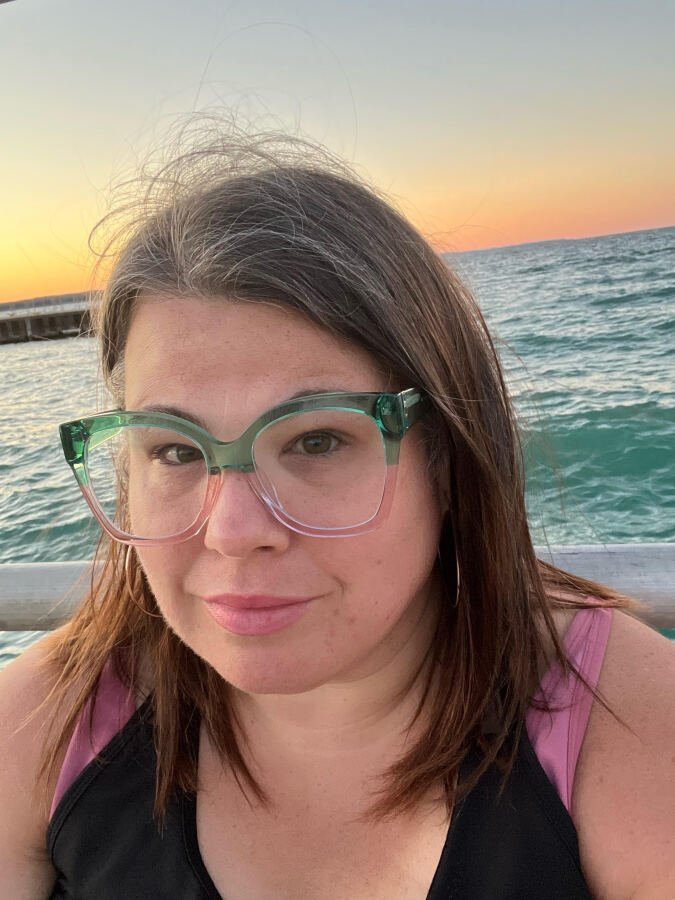
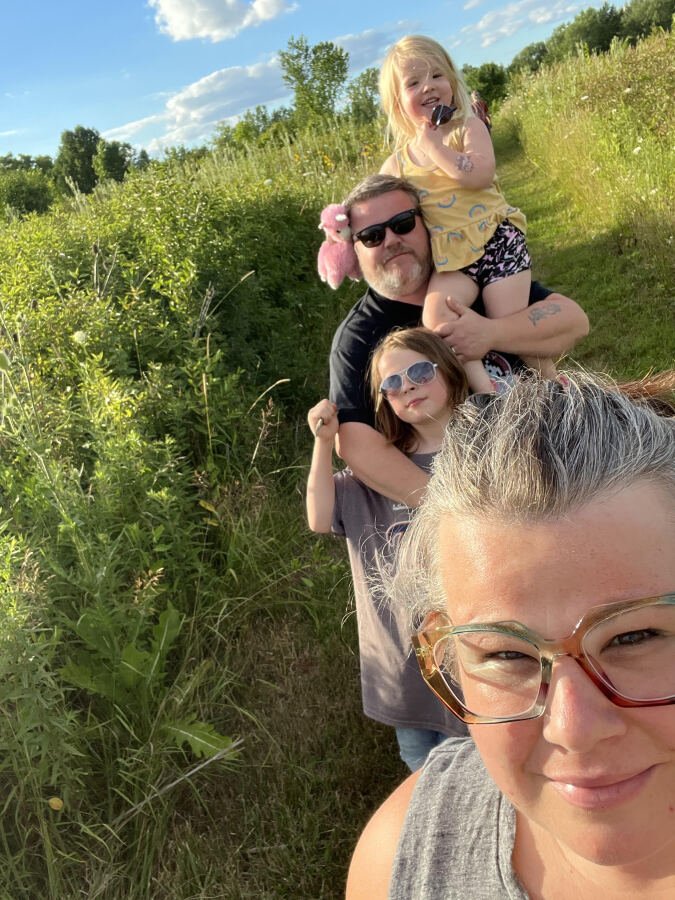


Click here to nominate a 2026 Epic Heart Hero!

